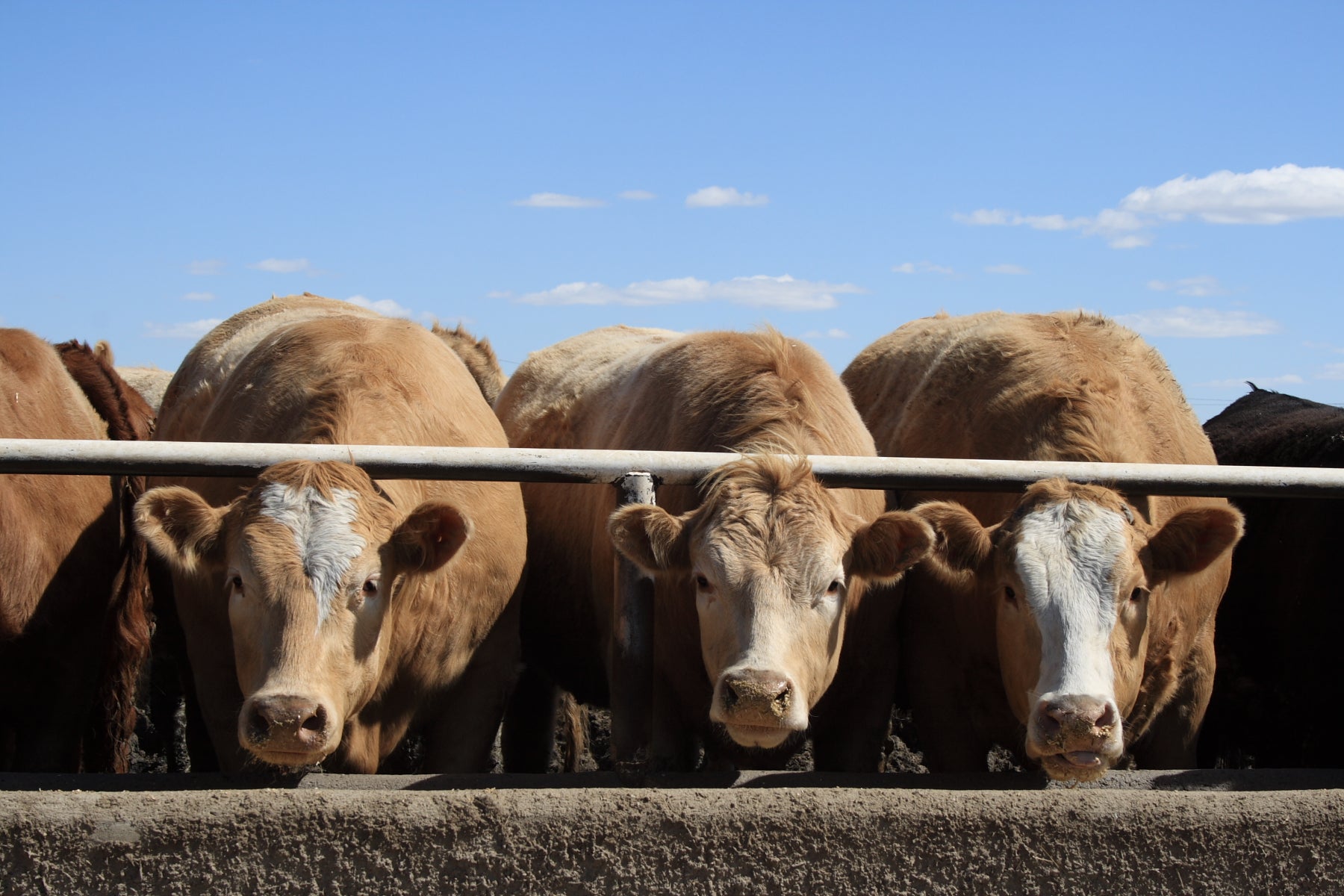‘We’ll never be able to compete, however much we lower our standards’: What the new agriculture bill really means for the food on our plates
A new bill could instigate a race to the bottom when it comes to the UK’s farming standards. Lizzie Rivera finds out more


Following Brexit, Britain is “taking back control” of its food standards with the new Agriculture Bill – touted as the biggest reform of British farming since 1945. However, last month, the government rejected a proposed amendment to enshrine in law that the food we import is farmed to the same standards as the food we grow. Without the amendment, the likes of chlorinated chickens, hormone-fed beef and GM-soy could feasibly find their way onto our plates, despite the fact that farming in this way is illegal in the UK.
Why is this important? Well, because we import around 50 per cent of the food we eat.
“It is completely unacceptable to ask our farmers to meet higher standards and then allow them to be undermined by cheap competition,” says Brighton MP Caroline Lucas. “All the government pledges about products sold in the UK being required to meet our regulatory requirements are just weasel words when it won’t back up those pledges in law.”
The Bill is now being debated in the House of Lords, so amendments can be made. Meanwhile, a campaign backed by food experts and chefs across the UK rages on, calling for the government to reconsider. Jamie Oliver has most recently put his name to it, saying it’s “probably the most important thing I’ve ever done”.
When they go low...
Farmer and Riverford founder Guy Singh-Watson has been closely tracking the slippery slope towards less-than-appetising food. He says: “Former Defra minister Theresa Villiers said in January, ‘We will not be importing chlorinated chicken’, while Michael Gove stated in 2017 that ‘under no circumstances’ would it be allowed; this week, Cabinet Office minister Penny Mordaunt tells us we should ‘trust the consumer’ to decide, and ‘put our faith in government’.”
Mordaunt is echoing the sentiment of American secretary for agriculture Sonny Perdue, who suggested that the UK should remain “unshackled” and the decisions of what we eat left to the market to decide, in an interview with BBC Radio 4’s Farming Today programme.
“The government is banking on the assumption that we don’t really care where our food comes from as long as it’s cheap,” says founding director of the Sustainable Food Trust (SFT), Patrick Holden.
But the reality is that consumers could be buying these products without realising, argues organic farmer and chief executive of the Soil Association, Helen Browning. “We know labelling regulations are already really weak and you can disguise a lot of food by putting on the label where it was processed and not where it was produced. This would undermine a lot of UK farming systems on the basis of price,” she says. “However much we lower our standards, we’ll never be able to compete with the Americans because we don’t have the scale of land or cheap labour. Our only route through is to be the best, not the cheapest.”
The reality is that cheap food comes at a high cost, insists Wahaca founder Thomasina Miers: “The food we are eating is killing us,” she says. “A third of the NHS budget goes to diet-related disease; it is now the number one preventable killer.”
Cheap food isn’t even as cheap as it seems, according to a report by the Sustainable Food Trust. It found that for every £1 UK consumers spend on food, an additional hidden cost of 97p is spent on attempting to mitigate the damaging impacts of intensive production methods on the environment as well as our health. This is largely paid for with our taxes. Essentially, we can almost double whatever cost we see on the supermarket shelf to calculate the true cost we are paying for so-called cheap food.
It’s catastrophic to think we’re going to have to compete with a system in America that’s totally broken
Rather than a race to the bottom, Holden offers a glimpse into the future we could have if we were to prioritise sustainable farming over free trade, based on a preview of another report the Sustainable Food Trust is releasing later this year.
It includes a lot of vegetables, grown all over the UK as part of mixed farming systems. It has more red meat than you would expect; lamb and beef and even dairy products, all pasture-fed, abound. Cheap chicken and cheap pork are eliminated, because these products are highly dependent on cheap grain, which we wouldn’t be able to produce sustainably. But pasture-reared organic chicken would be a tasty and expensive treat, as would native-breed, swill-fed and free-range pork.
“This dreadful guilt that’s associated with eating is depressing,” says Holden. “This is about hope, inspiration, realignment with nature and deliciousness.”
The true cost of cheap food
The industrial scale of farming in the US is hard for us to imagine.
It’s not just chlorinated chicken. It’s soy and corn grown with controversial herbicides and pesticides. Up to 80 per cent of US pigs are estimated to be fed the growth-promoting chemical ractopamine, which is banned in the EU and 160 countries worldwide. Beef cattle are notoriously reared in feedlots, thousands crammed into grassless pens for fattening before slaughter.
The UK is not immune from intensification: price pressures mean it is now home to upwards of 800 US-style mega farms and has had its fair share of controversy including the horse meat and chicken scandals, which implicated Nando’s, KFC and McDonald’s. But in the US, the total antibiotic use on farm animals is five times higher than in the UK, which points to even poorer conditions and animal welfare.
The new agriculture bill offers a chance to improve standards, not lessen them. “It’s catastrophic to think we’re going to have to compete with a system in America that’s totally broken. We don’t want giant factory farms in our villages,” says Tracy Worcester from campaign group Farms Not Factories.
Back British Farmers
Politicians called farmers “heroes” for feeding the nation at the height of the pandemic, but many argue the government is now prioritising global food chains.
“In many respects Covid has put the spotlight on the flexibility, integrity, resilience of the localised food chains built around smaller-scale farming,” says Peter Greig of Pipers Farm. “The globalisation of food production is a flawed concept. The Agricultural Bill must recognise the importance of our own resources, first and foremost, and then accept that trading with other countries is a way of supplementing our own product.”
Ultimately, we as consumers must become more savvy with what we’re buying. The responsibility to do this absolutely shouldn’t land on our plates; but clearly, in an era of “post-truth” politics, it does.
Sign the petition to Back British Farmers here
Lizzie Rivera is founder of sustainable lifestyle guide Live Frankly
Join our commenting forum
Join thought-provoking conversations, follow other Independent readers and see their replies
Comments